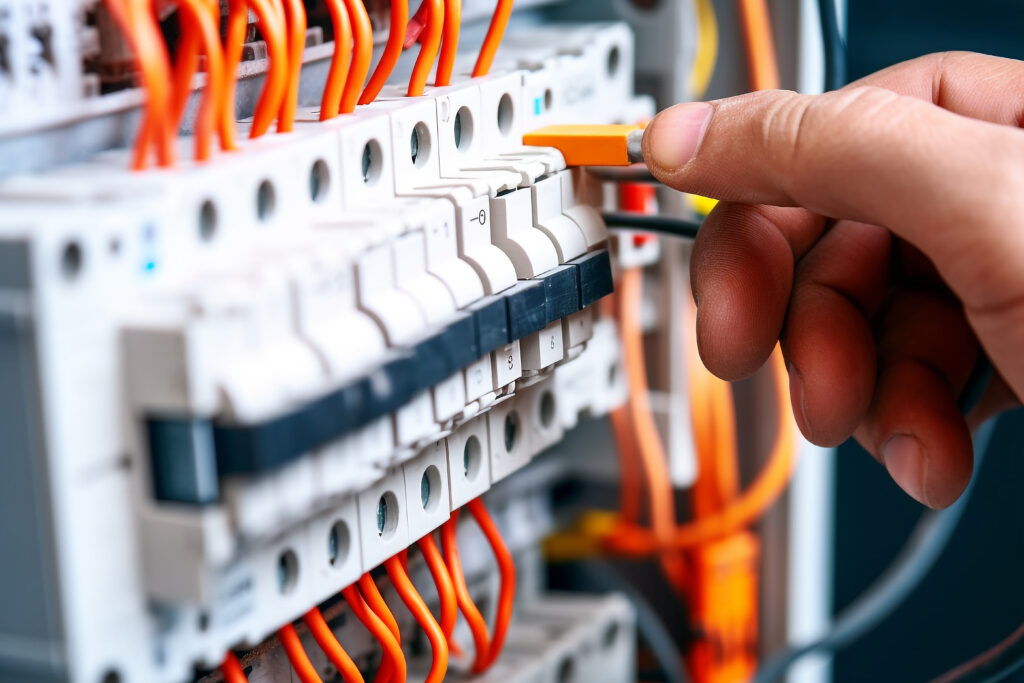Picture this: You flip the switch to turn on a lamp, only to notice the lights in the room dimming momentarily. Or perhaps you plug in an appliance, and suddenly the lights dim as if on cue. What’s going on here? Why do lights dim when turning something on, and could a faulty switch be to blame? Let’s shed some light on this common household phenomenon and explore the possible causes and solutions.

When you flip a switch to turn on a light or plug in an appliance, it draws power from the electrical circuit in your home. This sudden surge in power demand can cause a temporary drop in voltage, resulting in the lights dimming for a moment before returning to their normal brightness. This phenomenon is known as voltage sag or voltage drop and is a common occurrence in many homes, especially those with older wiring or electrical systems.
Why do lamp lights get dimmer when plugging in something else in a room?
Similar to the previous scenario, plugging in an additional appliance or device in the same room can also cause lights to dim momentarily. This is because the new appliance adds to the overall power demand on the circuit, leading to a temporary drop in voltage. The more power-hungry the appliance, the more pronounced the dimming effect may be. However, once the appliance is fully powered up, the voltage should stabilize, and the lights should return to their normal brightness.
Can a bad switch cause lights to dim?
While a bad switch is less likely to be the direct cause of lights dimming, it can contribute to the problem under certain circumstances. A faulty or worn-out switch may create resistance in the electrical circuit, leading to voltage drops and fluctuations. Additionally, loose or corroded connections within the switch can further exacerbate the issue. If you suspect that a bad switch is contributing to dimming lights, it’s best to have it inspected and replaced by a qualified electrician to ensure safety and proper functionality.
Issues that could be causing the problem
Several factors can contribute to lights dimming when turning something on or plugging in an appliance. Some common issues to consider include:
- Overloaded circuits: If your home’s electrical circuits are overloaded with too many appliances or devices drawing power simultaneously, it can lead to voltage drops and dimming lights. Consider redistributing appliances to different circuits or upgrading your electrical panel to accommodate increased power demands.
- Aging wiring: Older homes with outdated or deteriorating wiring may be more prone to voltage fluctuations and dimming lights. Over time, wiring can become worn, damaged, or corroded, compromising its ability to deliver consistent voltage to electrical devices. Consider having your home’s wiring inspected by a qualified electrician and upgrading as needed.
- Electrical panel issues: A faulty or overloaded electrical panel can also contribute to dimming lights and voltage fluctuations. If your electrical panel is outdated or undersized for your home’s power needs, it may struggle to handle increased power demands, leading to dimming lights and other electrical issues. Consider upgrading to a larger capacity panel or installing additional circuits to alleviate the problem.
- Appliance startup surge: Some appliances, particularly those with high-powered motors or heating elements, can draw a significant amount of power when starting up. This startup surge can cause lights to dim momentarily as the appliance draws power from the electrical circuit. While this is normal behavior for most appliances, you may want to consider staggering the startup times of multiple appliances to minimize the impact on lighting.

In conclusion, dimming lights when turning something on or plugging in an appliance is a common occurrence in many homes and is often caused by voltage drops or fluctuations in the electrical circuit. While this phenomenon is usually harmless, persistent or severe dimming may indicate underlying electrical issues that require attention. By understanding the common causes and solutions for dimming lights, homeowners can take proactive steps to ensure the safety and reliability of their electrical systems.
Contact an Electrician
If the lights in your home are dimming when you turn on an appliance or something else plugged in, it’s best to call an electrician. These issues may not seem like a huge deal in the moment, but taking care of them now before they develop into more difficult problems can be huge. Contact Coastal Home Services if you live in Morehead City, NC for all your electrical needs. We’ll take a look at your system and have it working properly in no time.


